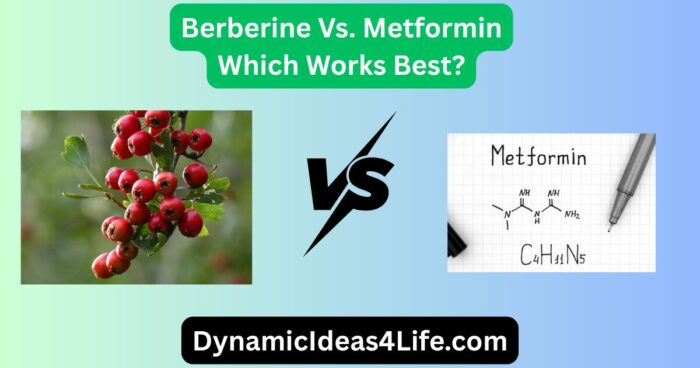
Berberine Vs Metformin – Which Works Better? For anyone keen to get a better grip of their Blood Sugar levels this is an Interesting thing to think about. Especially for those with low confidence in pharmaceuticals. So now,…

What Is Berberine?
Gut Effects: There’s also evidence it may inhibit alpha-glucosidase, slowing carbohydrate absorption in the gut. Mississippi Valley State University
Berberine has been getting some serious attention lately, but it’s actually been around for ages. Originating from plants like barberry and goldenseal, it’s been a go-to in traditional medicine for stuff like dealing with infections and digestive issues since ancient times.
Origin & Traditional Use
Berberine is a natural alkaloid extracted from several plants, including barberry, goldenseal, and Oregon grape. Historically, it’s been used in traditional Chinese and Ayurvedic medicine. Health + PubMed.
Mechanism of Action
AMPK Activation: Berberine is known to activate AMP-activated protein kinase (AMPK), a key energy sensor in cells. PubMed + Mississippi Valley State University
Other Pathways: It also influences other metabolic pathways — for example, increasing GLUT4 (a glucose transporter), modulating PPARα, and downregulating lipogenesis genes. PubMed
Mitochondrial Inhibition: Interestingly, some research suggests berberine inhibits mitochondrial complex I, which shifts cells toward glycolysis and improves glucose utilization — and this effect can happen even when AMPK is blocked. PubMed
Gut Effects: There’s also evidence it may inhibit alpha-glucosidase, slowing carbohydrate absorption in the gut. Mississippi Valley State University.
What Is Metformin?
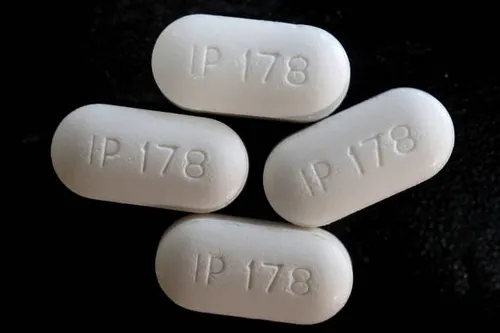
- Clinical Use & History
– Metformin is a first-line prescription medication for type 2 diabetes. It’s been used for decades and is one of the most studied glucose-lowering drugs.
- Mechanism of Action
– It also activates AMPK, though possibly via different upstream triggers than berberine.
– Metformin suppresses hepatic gluconeogenesis (making less glucose in the liver) and increases insulin sensitivity in peripheral tissues.
Berberine Vs Metformin – Which Works Better?

When it comes to tacking down blood sugar levels, both Berberine and Metformin have managed to make quite the name for themselves. Clinical studies have shown that Berberine has the chops to stand up to Metformin in terms of glucose control.
It’s like the underdog coming in strong at a match you’ve been waiting to see.
In the realm of real-world outcomes, we’ve got stories of folks finding Berberine quite effective.
There’s this one clinical trial that highlighted its ability to lower fasting blood glucose and HbA1c levels, sounding eerily similar to what Metformin offers.
Yet, personal anecdotes matter too, and plenty of people swear by their Metformin successes, having relied on it for many years now.
How Effective Is Berberine for Blood Sugar Control?

Clinical Evidence for Berberine
- In a meta-analysis of 37 studies covering over 3,000 people with type 2 diabetes, berberine significantly reduced:
- Fasting plasma glucose (FPG) by ~0.82 mmol/L
- HbA1c by ~0.63%
- 2-hour post-meal glucose by ~1.16 mmol/L PubMed
- In a pilot study, berberine’s effects were very similar to metformin: participants saw reduced HbA1c and improved insulin resistance without major organ toxicity. PubMed
- In prediabetic adults, one randomized clinical trial compared 500 mg berberine twice daily vs 500 mg metformin twice daily for 12 weeks. Berberine reduced fasting glucose by ~12.6 mg/dL; metformin reduced it by ~10.8 mg/dL. HbA1c dropped by 0.31% in the berberine group vs 0.28% in the metformin group. Importantly, GI side effects were less common in the berberine arm. Br J Basic Clin Pharmacol+1
Comparative / Synergy Evidence
PCOS Study: In women with PCOS (common insulin-resistance condition), a 3-month trial found berberine helped reduce waist circumference, lipids (LDL, triglycerides), and improved other metabolic/hormonal markers — in some cases even more than metformin. PubMed
Lipogenesis Study: In vitro (HepG2 liver cells), combining metformin + berberine (at certain ratios) created a synergistic lipid-lowering effect. PubMed
Beyond Glucose Control: Additional Health Benefits
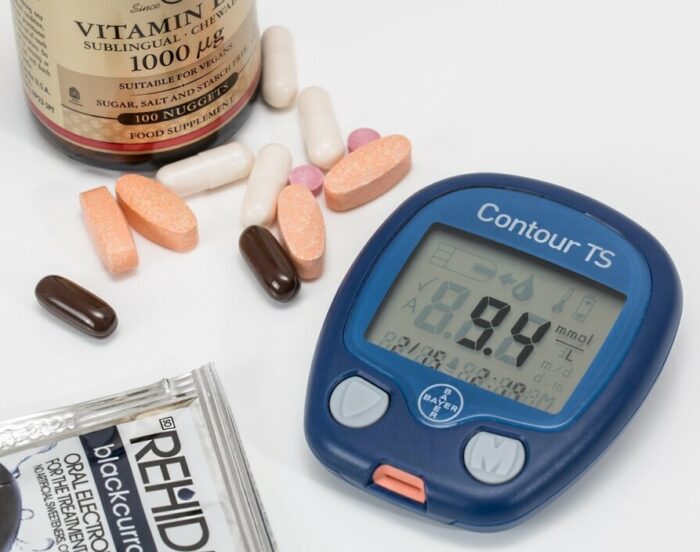
Berberine and Metformin both have benefits that go beyond just lowering blood sugar:
Potential Long-Term Metabolic Effects: Because of its broad mechanism, berberine might impact not only glycaemic control but also weight regulation, inflammation, and metabolic flexibility.
Lipid Profile: Berberine may improve cholesterol and triglycerides, partly via its impact on liver lipogenesis. PubMed1 + PubMed2
Insulin Resistance / PCOS: For insulin-resistant conditions (like PCOS), berberine may be especially helpful. PubMed
Risks & Side Effects
Berberine
- Gastrointestinal (GI) Issues: Common side effects include stomach upset, diarrhea, or constipation. In some trials, GI upset was less frequent vs metformin. Br J Basic Clin Pharmacol
- Bioavailability & Dose: Berberine has relatively poor bioavailability; that’s part of why some research is exploring better forms or derivatives. JAMA Network
- Supplement Quality: As a supplement, berberine is not regulated like a prescription drug. Quality (purity, dose) can vary significantly across brands.
- Unknown Long-Term Risks: While short-term trials are promising, long-term safety (especially in combination with other drugs) needs more data.
Metformin
- GI Side Effects: Very common (nausea, diarrhea) especially when starting or increasing dose.
- Vitamin B12 Deficiency: Long-term metformin use is associated with reduced B12 absorption; periodic B12 checks are often recommended.
- Rare Risks: There’s a low risk of lactic acidosis, particularly in people with kidney or liver impairment, though this is uncommon when used appropriately.
Using Berberine and Metformin Together — Is This a Thing?
Yes — some preclinical research (and anecdotal reports) suggests metformin and berberine may complement each other:
However, combining them could also increase the risk of hypoglycemia or GI issues, so medical supervision is essential.
In liver cell studies, combining both at certain ratios produced greater lipid-lowering than either alone. PubMed
Which One Might Be Right for You?
Choosing between Berberine and Metformin isn’t a one-size-fits-all situation. It’s more about what fits your personal health needs, lifestyle, and goals. If your main aim is managing your blood sugar and you’re open to exploring alternatives, Berberine might be your option, especially if you’re wary of traditional prescription medications.
Here are just some different factors to consider:
| Factor | When Berberine Might Be More Attractive | When Metformin Might Be More Attractive |
| Intolerance to Metformin | If you’ve tried metformin but struggle with GI side effects | – |
| Preference for Natural/Supplement | As a supplement (dietary), subject to quality variability | – |
| Prediabetes / Mild Insulin Resistance | Evidence from trials in prediabetes supports berberine’s efficacy Br J Basic Clin Pharmacol | Metformin is standard, especially if doctor recommends pharmacological therapy |
| PCOS / Hormonal Issues | Berberine may help with lipids, waist circumference, insulin sensitivity PubMed | Metformin is also established for PCOS, but may not improve lipids as strongly |
| Monitoring / Safety | Need to choose a high-quality supplement; monitor for GI issues | Requires lab monitoring (kidney, B12), and prescription |
How to Use Berberine Safely
If you’re considering berberine, here are some practical tips:
- Talk to Your Doctor: Especially if you’re already on metformin or other medications. You’ll need to monitor labs periodically (e.g., kidney, B12).
- Start Low & Go Slow: Begin with a small dose (e.g., 500 mg once or twice daily) and increase gradually to minimize GI side effects.
- Take With Food: Helps reduce GI discomfort and may improve absorption.
- Cycle Use (Optional): Some people cycle berberine (e.g., 8–12 weeks on, then a break), though definitive guidance is lacking.
- Choose a Quality Brand: Look for third-party testing, purity certificates, and reputable manufacturers.
- Monitor Blood Sugar: If you’re using it for glucose control, regularly check your blood sugar (fasting, post-meal) to track its effect.
In Conclusion: Berberine vs Metformin — Who Wins?
Berberine and metformin both have strong, but somewhat different, mechanisms and clinical profiles.
Berberine offers a “natural supplement” route and has shown promising efficacy in trials, sometimes comparable to metformin, with relatively fewer GI side effects.
Metformin remains a gold standard in medical practice due to its established safety, consistency, and broad clinical data.
For some people, a combination (under medical supervision) might be beneficial.
Whatever path you choose, work closely with a healthcare provider, monitor your metrics, and choose high-quality sources.
🌿 Ready to Try Berberine? A Natural Option Worth Considering
If you’re curious about whether Berberine could help support healthier blood sugar levels, weight management, or overall metabolic health, now might be the perfect time to explore it for yourself. While Metformin remains a trusted prescription medication, many people are turning to Berberine as a natural, research-backed supplement that may offer similar benefits — without needing a doctor’s script.
Before adding any new supplement to your routine, be sure to speak with your healthcare provider, especially if you’re currently taking Metformin or other medications.
👉 Want to try Berberine for yourself?
Check out our in-depth review of [Berberine Breakthrough by BiOptimizers] — including benefits, dosage guidance, and what sets it apart from other brands.
👉 Or browse our recommended Berberine supplement here.
Perfect for beginners looking for a clean, reliable, and high-strength option.
Taking a small step today could be the beginning of better blood sugar management and a more balanced metabolism.
Related Blog Posts:
FAQs About Berberine vs Metformin
Some people do take both, but this combination should only be done under medical supervision. Because both lower blood sugar, using them together can increase the risk of hypoglycemia (low blood sugar). Always check with your healthcare provider before combining these treatments.
Most studies show noticeable improvements in blood sugar and cholesterol levels after about 8–12 weeks of consistent use. However, individual results vary based on factors like diet, dosage, and metabolism.
Berberine is usually taken 2–3 times per day with meals. Taking it with food helps minimize stomach upset and supports better absorption. It’s best to split doses rather than take it all at once.
Early research suggests berberine is generally safe when used correctly, but long-term studies are still limited. Because it can affect gut bacteria and liver enzymes, periodic breaks and regular check-ins with your doctor are a smart idea if you plan to take it for several months or more.
Some people experience mild digestive discomfort such as cramping, bloating, or constipation — especially when starting out. These effects often improve once your body adjusts. Starting with a lower dose and gradually increasing can help.
Both have shown potential for modest weight loss. Metformin tends to promote weight stability or slight loss, while berberine may slightly boost metabolism and fat-burning through AMPK activation. Still, neither replaces the need for a healthy diet and regular exercise.
If you’re considering switching, do so only under medical guidance. Metformin is a prescription drug with well-established dosing and monitoring protocols. Berberine can be a good natural alternative for some, but it’s important to make the transition safely with professional input.
Not necessarily. While some studies show similar glucose-lowering effects, metformin has decades of robust clinical data, long-term safety data, and widespread medical acceptance. Berberine might be an option for some, but not a guaranteed replacement.
A: Yes. Metformin has known renal / liver dosing considerations. Berberine’s long-term use has less data, so if you have kidney or liver disease, consult your doctor first.
References & Sources
- Yin, J., Xing, H., & Ye, J. (2008). Efficacy of berberine in patients with type 2 diabetes mellitus. Metabolism, 57(5), 712–717.
https://doi.org/10.1016/j.metabol.2008.01.013 - Zhang, Y., Li, X., Zou, D., Liu, W., Yang, J., Zhu, N., … & Jia, W. (2008). Treatment of type 2 diabetes and dyslipidemia with the natural plant alkaloid berberine. The Journal of Clinical Endocrinology & Metabolism, 93(7), 2559–2565.
https://doi.org/10.1210/jc.2007-2404 - Rena, G., Hardie, D. G., & Pearson, E. R. (2017). The mechanisms of action of metformin. Diabetologia, 60(9), 1577–1585.
https://doi.org/10.1007/s00125-017-4342-z - Kong, W., Wei, J., Abidi, P., Lin, M., Inaba, S., Li, C., … & Jiang, J. D. (2004). Berberine is a novel cholesterol-lowering drug working through a unique mechanism distinct from statins. Nature Medicine, 10(12), 1344–1351.
https://doi.org/10.1038/nm1135 - Bailey, C. J., & Turner, R. C. (1996). Metformin. New England Journal of Medicine, 334(9), 574–579.
https://doi.org/10.1056/NEJM199602293340906 - Cicero, A. F. G., & Baggioni, A. (2016). Berberine and its role in chronic disease. Advances in Experimental Medicine and Biology, 928, 27–45.
https://doi.org/10.1007/978-3-319-41334-1_2



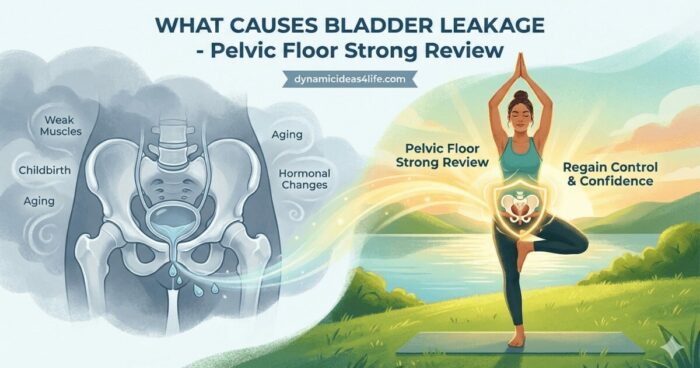

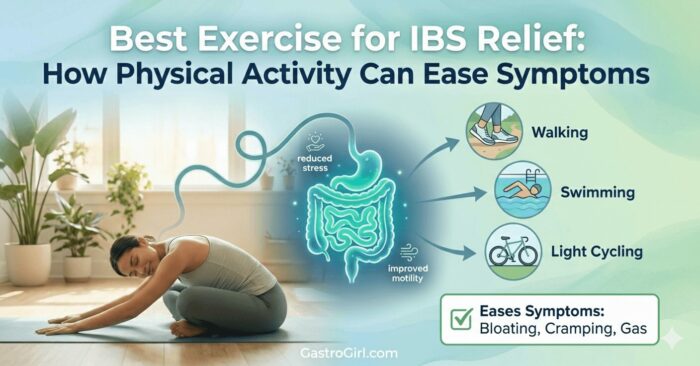
Anxiety and Depression BiOptimizers blood pressure supplements blood sugar control blood sugar support supplements cognitive function digital products Dr Sam Robbins Exercise Gut Health Healthy Living heart health HFL how to lower blood sugar levels How To Lower Cholesterol insulin resistance joint health supplement Keto keto dieting Keto Diet Weight Loss leaky gut supplements leptin resistance list Magnesium deficiency Matt Gallant mental health multivitamins Nootopia Nootropics nutrient supplements Probiotics Probiotic Supplements proteolytic enzymes reverse type 2 diabetes stress and anxiety stress relief Supplements vitabalance vitapost Wade Lightheart weight loss articles weight loss diet plans weight loss product reviews weight loss supplements weight loss tea






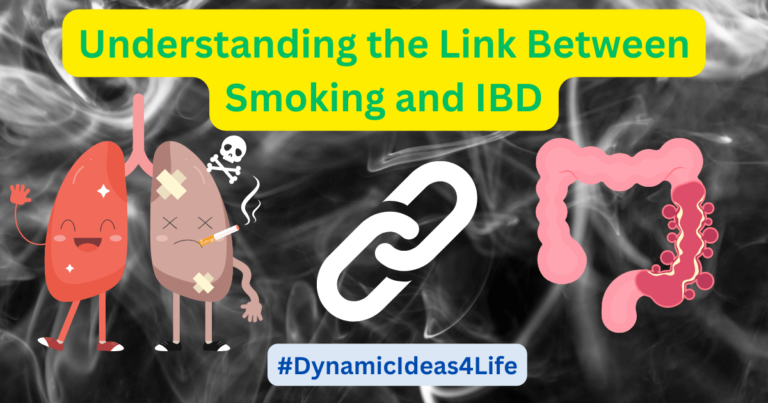
Hello Alex,
This was a fascinating article. I will fully admit I have never heard of berberine before reading this.
I am a Type 2 and was on metformin for some time. My doctor was able to use Monjaro to lower my A1C with the help I provided by sticking with a strict diet that I hated at first. I was taken off of metformin last year without incident. I do know some people who are having issues with their blood sugar, and I cannot wait to share this article.
Thanks,
Michael
Thanks Michael. Diabetes is a very tricky one. I’ve heard lots of great things about Metformin and that it has helped people like yourself. However, my thinking is to quite a large degree about plant medicine. What I find quite fascinating is how we can cure our ailments without manufactured products. Its a shame the world has become as reliant as they have on things like Metformin – although I do think this is probably one of the better pharmaceuticals that you can be given.